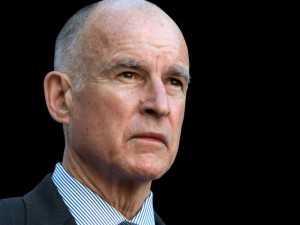LOS ANGELES — Not for nothing do the bundlers, bag men and swag agents call California the golden state. They decamp here early and stay late. A lot of the money they raise for the campaigns is collected in California.
But the presidential candidates themselves spend their time mostly elsewhere.
California, with its 45 electoral votes, has become irrelevant to presidential politics. Neither a Democrat nor a Republican wants to waste his time here.

There’s a lot going wrong in California, and it looks a lot like what’s going wrong in the rest of the country. The state is broke. Unemployment is up, standing at 11 percent. California is running an annual deficit of $16 billion and by some estimates 2,000 wealthy Californians leave every week to find new homes where taxes and regulations aren’t so onerous. This ought to be a recipe for Republican opportunity.
But it’s not. The latest Field Poll, the yardstick by which election prospects have been measured since 1947, shows Barack Obama leading Mitt Romney by 18 points, 55 percent to 37 percent. Field finds that a majority of Californians think the country is moving in the wrong direction, but a larger majority think the president is doing a good job nonetheless.
Not so long ago, California was a battleground state, with both presidential candidates criss-crossing its length (770 miles) and breadth (250 miles). No more. California is so blue that both candidates come here mostly to mine for money, making only perfunctory appeals for votes. Democrats regularly strike oil in Beverly Hills. Both parties understand that California is almost as blue as the District of Columbia. Why waste time?
The state’s Republican party has shrunk almost to irrelevancy, too. There’s no Republican holding a statewide office and Democrats control both houses of the state legislature, and by wide margins. One Republican consultant says the party has become a cult.
“It’s no longer a statewide party,” Allan Hoffenblum, who has consulted with Republican candidates for 30 years, tells the Los Angeles Times. “They’re down to 30 percent [of the state electorate], which makes it impossible to win a statewide election. You just can’t get enough crossover voters.”
The good news for the national Republican party is that, 45 electoral votes or not, rabidly blue California is no longer necessary to put together the 270 votes needed to win the White House. This is due in part to the South, once the keystone of a Democratic campaign, becoming the Solid South once more, this time for the Republicans. It’s a conservative counterweight to the left and right coasts.
There are two Californias, too. In fact, argues Victor Davis Hanson, the columnist, historian and classics scholar at the Hoover Institution at Stanford University, “California” is a misnomer. There is no such state, but two cultures, each dysfunctional in different ways. “Apart they are unworldly, together a disaster.”
Coastal California, outwardly prosperous, carefree and where the dreamy lotus of Greek legend grows in utopian abundance, runs north along the Pacific from San Diego to San Francisco. Crippling regulations that curb timber, oil, gas and farm production have turned an inland empire into a vast hinterland of poverty and despair. While the state’s population grew by 10 million in the two decades after 1980, the number of Californians on Medicaid grew by 7 million. A third of all Americans on welfare now live in California. Unemployment has soared above 15 percent. If you would see the future, come to California’s Central Valley. If coastal California is the south of France, interior California is impoverished Greece.
“In the Never-Never Land of Apple, Facebook, Google, Hollywood and the wine country,” says Mr. Hanson, “millions live in idyllic paradise. Coastal Californians can afford to worry about trivia – and so their legislators seek to outlaw foie gras, shut down irrigation projects in order to save the three-inch Delta smelt, and allow children to have legally recognized multiple parents. .. coastal utopians have little idea where the fuel for their imported cars comes from, or how the redwood is cut for their decks, or who grows the ingredients for their Mediterranean lunches of arugula, olive oil and pasta.”
The elites are not only drunk on their feel-good good life, but they’re reaching for a little hair of the dog. Gov. Jerry Brown, the “Governor Moonbeam” of yesteryear, is popular along the coast because he prescribes more of what has sickened California. He’s pushing a fanciful high-speed train that is accelerating toward $100 billion and runs along routes already served by bankrupt Amtrak.
If you were running for president, you wouldn’t want to campaign here, either. Just take the money and run, somewhere else.
Wesley Pruden is editor emeritus of The Washington Times.

